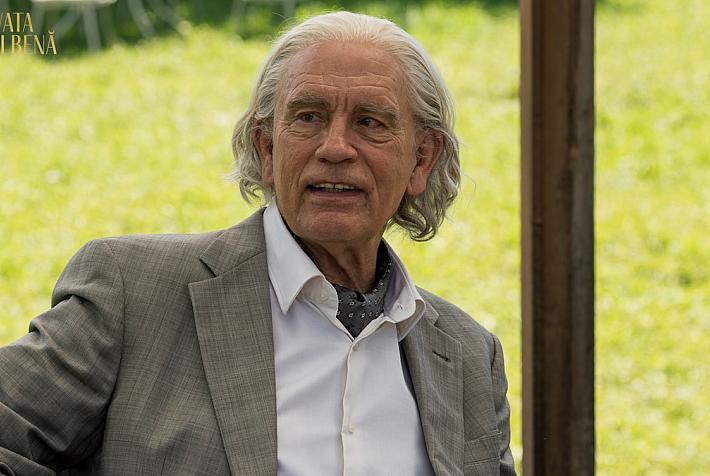(P) Corporate solidarity to help homeless people in Bucharest

On Wednesday, 16 December 2015, between 13:00 and 15:00 hours at the North Railway Station, Bucharest, the Casa Ioana Association, together with volunteers from the British and American Embassies, the Faculty for Sociology and Social Work (Bucharest University), local businesses and other volunteers, will serve hot meals and provide clothing and other essential items to some of Bucharest’s homeless population. Helping to serve the meals at the event will be the British Ambassador to Romania and Stefan Frank, the General Manager of the InterContinental hotel in Bucharest.
The event is supported by the General Directorate of Social Assistance for the Municipality of Bucharest. The 300 hot meals are a gift from the InterContinental Bucharest, whilst other companies and many individuals have donated cash, other food to take away, hot drinks and warm clothes, as a simple gesture of solidarity with those experiencing homelessness.
Romania is at, or near, the bottom scale on almost all EU measures of poverty and social exclusion and this has been comprehensively reported by the EU, World Bank, UNICEF and many other observers. In addition to the 40% who are at risk of poverty or social exclusion, 29% are estimated to be severely materially deprived, which is almost three times more than the EU average. The new composite Social Justice Index, which scores EU countries based on poverty prevention, equitable education, labour market access, and other factors ranks Romania 27th. Only Greece, in its state of despair, ranks lower.
Despite the general estimate of approximately 5,000 homeless people living on the streets of Bucharest, it is impossible to assess accurately the number of people sleeping rough in the Capital. Many others live in overcrowded or inadequate housing conditions whilst others stay temporarily with friends. Relationship breakdown, lack of job security and low wages, coupled with a severe lack of affordable housing are significant causes of homelessness. Increasingly, families are losing their homes and being forced to live on the streets, particularly those experiencing domestic violence and who have no one to turn to for help.

Once living on the street, many homeless people find it difficult to earn enough to find a decent place to live. Despite between one third and one half of homeless people being in employment, most are employed in the black economy and in jobs which do not provide job security or pay enough for basic living expenses. Others are underemployed, meaning that they cannot work enough hours to pay their bills. A lot of homeless people have two or three jobs at a time, but a small number of small income jobs do not help very much either. Without legitimate jobs, they find themselves outside of the social assistance and health systems.
Ian Tilling, President of Casa Ioana Association says that decent employment and affordable child care are vital ingredients for escaping life on the street. “We work with mothers who have often been forced to depend on an abusive partner for accommodation and financial security, not only for themselves but for their children. They face huge challenges in getting and maintaining a decently paid job and affordable child care whilst at work. In such a competitive environment, the difficulties they face are almost insurmountable barriers to employment.”
The British Ambassador to Romania, Paul Brummell, says, “I am delighted that the British Embassy in Romania, and many of our embassy staff have contributed each winter season to help the less fortunate among us. It is important to keep on pressing publicly the idea that poverty is a by-product of inequality. We all can help make a difference. We are making it yet again this December. Come join us!”
“It is a great opportunity for people to come together and volunteer their time to help those in need", says Stefan Frank, General Manager of the InterContinental Bucharest."
There is no single reason why people become homeless. While there are common factors that account for people being forced to live on the street - financial problems, unemployment or family breakdown being most apparent; the reasons behind an individual becoming homeless are often multiple, complex and more often than not, beyond the control of the individual concerned. However, we do need to recognise those who are vulnerable and give a helping hand where we can.
Background to the Casa Ioana Association
The Casa Ioana Association (Casa Ioana) was established in 1995 and supports families and single women experiencing domestic violence and family homelessness. Casa Ioana opens the door to safe temporary housing and a wide range of professional psychosocial support services.
Contact person: Nicoleta Dinu – Public relations and communications
+40 760 249 392, nicoleta.dinu@casaioana.org
(p) - this article is an advertorial











